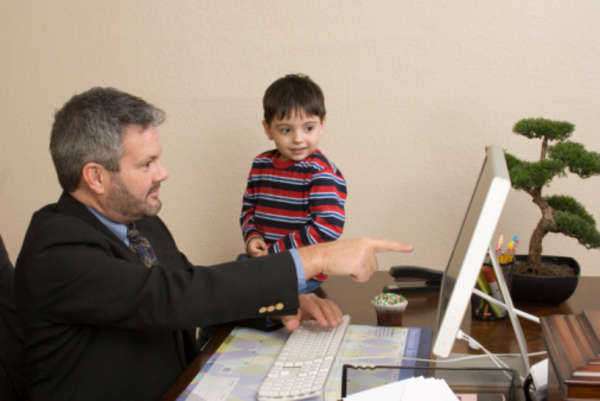
Adopting a child is a significant decision and a noble act that gives the gift of a loving home to a child who may be in need. It allows the parent to provide a healthy and stable environment for the child to flourish and grow. However, the process of adopting a child can seem complex and overwhelming, resulting in many people dismissing the idea altogether. This guide will serve as a starting point for anyone interested in adopting a child, providing them with an overview of the process and necessary steps to take.
Types of Adoption
The first step in the adoption process is identifying the type of adoption one wishes to pursue. There are various types of adoption, each with its own unique requirements and challenges:
1. Domestic Adoption: Domestic adoption occurs within a country’s borders and involves adopting an infant, toddler, or older child through a licensed adoption agency, an attorney, or through independent adoption.
2. Foster Care Adoption: Foster care adoption involves the adoption of a child who has been placed in foster care, typically due to abuse or neglect in their previous home. Adopting through foster care is often less costly and quicker than other types of adoption, and it also provides a permanent home for a child who may have experienced difficulties early in their life.
3. International Adoption: International adoption involves adopting a child from a foreign country, which can be a lengthy and costly process. However, it allows adoptive parents the chance to provide a home to a child in need who may have limited options in their country of origin.
4. Stepparent Adoption: This type of adoption occurs when a stepparent legally adopts the biological child of their spouse or partner.
Choosing an Adoption Agency
Once the decision on the type of adoption has been made, the next step will be choosing an adoption agency that aligns with one’s preferences. Adoption agencies play a crucial role in the adoption process, providing support, guidance, and expertise to prospective parents.
To identify a suitable adoption agency, one should conduct thorough research on independent agencies and their services. In case of adoption through a government-run agency, the parent should contact the state or county department of social services or the child welfare agency responsible for adoption services to gather more information.
It is essential to choose an agency that is licensed, reputable and with a track record of successful adoptions. The Better Business Bureau (BBB), state-based adoption support groups, and Child Welfare Information Gateway are good resources for researching potential agencies.
The Home Study
A home study is a fundamental part of the adoption process and required for most types of adoption. The home study ensures that the potential parent is ready and capable of providing a safe, healthy, and loving home for a child.
A social worker or licensed professional usually conducts the home study process. The process involves the preparation of a report that outlines the prospective parent’s background, financial status, home life, and overall suitability to provide a home for a child. The home study process can take several months to complete, requires the payment of fees, and requires applicants to provide detailed information about their backgrounds, lives, and personal beliefs.
One of the essential reasons behind the home study is to ensure that the child gets a safe and stable home. There will be a background check on the prospective parent as well, including a criminal background check, finger-printing, interviews with people who know them, and a child abuse clearance. A visit to the home is also included to make sure that the living conditions are appropriate for the child to live.
Legal Requirements
After being approved through the home study, prospective adoptive parents start the legal procedures for adopting a child. The legal process is essential in the adoption process to ensure that every appropriate measure has been taken to ensure that the child being adopted will be loved unconditionally by the prospective parent. The legal requirements for adopting a child vary depending on the type of adoption and the state laws.
A critical aspect of adoption is the permanent relinquishment of parental rights by the biological parent(s). In some adoption cases, the parental rights have already been terminated by the court, provided the child is in foster care. But, in domestic adoptions, the biological parent can relinquish their rights voluntarily.
During the legal process, prospective parents may need to attend court hearings; make court appearances, obtain a child’s birth certificate, and acquire legal consent from the biological parents. These legal procedures can be complicated and confusing, making the involvement of an attorney who specializes in adoption law particularly essential.
Post-Adoption Considerations
The adoption process does not stop at the legal finalization. Nonetheless, new beginnings have been created; adoptive parents must provide a stable and nurturing environment for the child. Adopted children may require special attention and care to address any emotional or behavior concerns.
Additionally, it is important not only to offer love and affection to the child but also to ensure that the child retains their cultural identity. It is essential to consider how to address the child’s background and create an environment where they are celebrated for who they are.
Conclusion
Adopting a child is a noble and selfless decision that requires patience, commitment, and probably considerable financial investments. Adopting a child can be a rewarding experience and a life-changing decision for both the child and the family. The adoption process includes identifying the type of adoption, identifying a reputable agency, applying through a home study process, fulfilling legal documentation requirements, and finally, creating a nurturing and supportive environment.
As of 2021, the National Council for Adoption is a resourceful source for information on adoption, as well as for research in the field of adoption. It provides several resources on adoption options, the different processes for adoption, legal requirements, financial assistance, and awareness campaigns. With proper research, adequate preparation, and commitment, anyone can enjoy the blessings of being an adoptive parent.
When looking to adopt a child, a family will first have to choose a country of interest. After choosing a country in which the family desires to adopt a child from, they must then find a child adoption agency. A child adoption agency should be thoroughly looked into prior to making the final decision to ensure that there are no complaints against the agency.
Typically, the child adoption agency will assign a social worker to work with you to efficiently adopt a child. The social worker will go over fees, legal costs, and medical expense, as well as conduct several interviews and home studies to ensure the family is fit to adopt a child. After being approved, legal support will be necessary to legally sign the child into the family’s custody. The lawyer will work with the agency and the specific country’s laws to effectively get the child into the United States.




























